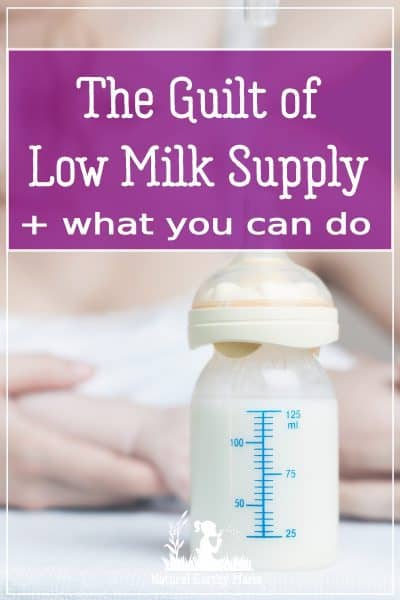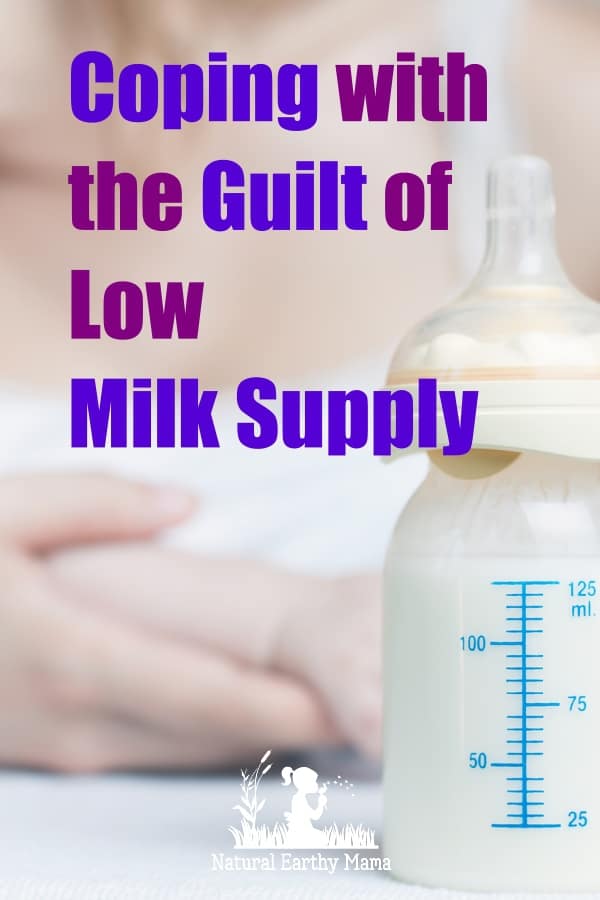 Parenting is a guilt trap, no matter what you choose to do, or choose to believe, someone out there disagrees with you and thinks you are terrible. Unfortunately, all too often that “someone” is actually ourselves. Living with low milk supply is just another reason that we beat ourselves up. Luckily there are things you can do to help when you are suffering with low breastmilk production.
Parenting is a guilt trap, no matter what you choose to do, or choose to believe, someone out there disagrees with you and thinks you are terrible. Unfortunately, all too often that “someone” is actually ourselves. Living with low milk supply is just another reason that we beat ourselves up. Luckily there are things you can do to help when you are suffering with low breastmilk production.
As mothers, we get exhausted at getting up 50 times a night to feed our newborn so we pop them in bed with us, then we feel like we are worst parents ever, risking SIDS like that (when actually, done safely bed sharing reduces SIDS, but that’s a post for another day).
Please read: This information is provided for educational purposes only and is not intended to treat, diagnose or prevent any disease. We encourage you to make your own health care decisions in partnership with a qualified health care professional.
This post contains affiliate links, this means at no extra cost to you, we make a commission from sales. Please read
our Disclosure Statement
We get overwhelmed by the constant “mom, mommy, mom, moooom, MMMOOOOMY” all day and we snap “WHAT, WHAT DO YOU WANT??” Then we chase ourselves around with the guilts the rest of the afternoon for being the most horrible person in the world.
It goes on and on, we are really our own worst critics and by far our worst enemy when it comes to beating ourselves up over things. So how hard is it, and how terribly guilt ridden are the moms out there that try desperately to breast feed but truly truly can’t?
RELATED POST: Making a breastfeeding basket
Who is at an increased risk of Low Milk Supply?
The following factors can contribute to a low milk supply in a new mother:
Not getting enough sucking stimulation.
A sleepy or jaundiced baby may not nurse vigorously enough to empty your breasts adequately. Even a baby who nurses often may not give you the stimulation you need if he is sucking weakly or ineffectively.
Being separated from your baby or scheduling feedings too far apart can interfere with the supply and demand system of milk production as well as decreasing the amount of suckling stimulation. Keep your baby close, day and night, and nurse often, this is the best way to boost your milk production.
Feeds are too short
Most babies need to spend from 20-45 minutes per each feed during the newborn period in order to get enough milk.
During each feed, offer both breasts through the early weeks in order to receive adequate stimulation. Some babies can get plenty of milk from one breast, after nursing only a few minutes, usually this happens after the milk supply is well established, and not in the early stages of breastfeeding.
A Sick or Stressed Mama
If you are sick or under a lot of stress, your milk supply may be low. Hormonal disorders such as thyroid or pituitary imbalances or retained placental fragments can also cause problems. Many mothers find that their supply goes down when they have a cold or other illness. Conditions like PCOS, thyroid issues and diabetes can affect milk supply as well.
Using Formula or Pacifiers
Using formula supplements or pacifiers regularly in the early days can decrease your supply. A baby that ise full of formula will nurse less often, and some babies are willing to meet their sucking needs with a pacifier rather than spending time at the breast.
Nipple Pain
If your nipples are very sore or damaged, the pain may inhibit your letdown reflex, and you may also tend to delay feedings because they are so unpleasant.
Medical conditions in Mom or Baby
Tongue-Tie, Yeast Infections, and Flat or Inverted Nipples can cause nipple soreness and make it difficult for the baby to get the milk he needs. C
Previous breast surgery
Anytime you have breast surgery, there is a risk of breastfeeding problems, especially if milk ducts have been damaged. Generally, breast implants or breast biopsies cause fewer problems than breast reduction surgery.
C-section Births
Moms who have a Cesarean birth may experience a slight delay in the milk coming in, but once it does, moms who deliver via C-section produce just as much milk as the mothers who deliver vaginally.
Birth Control
Taking combination birth control pills – those containing both estrogen and progesterone or getting pregnant while nursing can alter your hormone levels and cause a decrease in your supply.
Other causes
Smoking heavily, and taking certain medications can also adversely affect your supply.
The Guilt of Living with Low Milk Supply
Breast is best, right? We get it told to us repeatedly, all the time, it’s everywhere.
What if some times it’s not? What if, actually my breastfed baby is starving, thanks to my guilts about using formula, or heaven forbid, a bottle?
It is a common misconception, even in the midwife /infant care, that everyone can in fact breastfeed fully with the “right support”. I’d like to let you all in on some big news: It simply isn’t true.
There are some of us out there (me included) that no matter what we try, no matter how determined we are, we cannot successfully exclusively breastfeed our children.
RELATED POST: 5 Surprising symptoms of low milk supply
The one cause I know about (though there are a few) is Polycycstic Ovarian Syndrome, commonly called PCOS. It is recognized as one of the most common endocrine/metabolicdisorders of women.
It is suggested up to 12% of the female western population may have this syndrome, though many are undiagnosed and may not have obvious symptoms. Of this group of women, many will have some degree of difficulty getting pregnant.
About 1/3 of this 12% will struggle with an over supply of milk (a whole ‘nother issue), 1/3 will have no problem whatsoever, and the final third have been shown to have a genuine insufficient milk supply. About 1/3 of those with poor supply (so 1 woman in 100 or there abouts) actually make very little or no milk. No matter what they do, no drugs they take will help. If this is you, its not your fault!!
RELATED POST: PCOS and Breastfeeding
For me it was the biggest kick in the guts, even though I half expected it (my mother also struggled). After I found out that I was finally pregnant after 2 1/2 years of trying, I thought “Yay, my body wasn’t totally broken!”
But after she was born I kept saying to the midwifes, “I don’t think shes getting anything, I don’t think shes swallowing.” They were very reassuring, and helped me with the correct latch, but no one ever said, “You know what, she’s actually not swallowing.” Not surprisingly, 3 Days later she was back in hospital, very very jaundiced and very very dehydrated. She had lost a full pound of weight in 3 days.
Improving Milk Supply
So what does help? Regular expressing, a great latch technique, demand feeding and skin to skin cuddles all help get your natural hormones going, for sure.
There are some medications that can help, I took Domperidone 4 times a day (doctors prescription) and fenergreek and blessed thistle from the health food shop.
It definitely helped, I did end up with some kind of supply after 4 weeks.
Increasing the quality fats in your diet helps too, eating coconut oil several times a day and eating real eggs, butter and full fat dairy help:
1) They increase the fat quality and quantity in your milk and
2) They contain important base chemicals/fats to help your body make the hormones it needs to function well.
3) They also contain Omega 3 which helps keep post natal depression away!
The best invention ever is the Supplemental Nursing System (SNS) which acts like a straw in a bottle for your baby.
The best thing about it is that your baby can get all the amazing benefits of breastfeeding, being close, skin to skin cuddles while also ingesting donor milk or infant formula along side what ever mommy is managing to make on her own while simultaneously stimulating you to make more milk of your own.
RELATED POST: Increasing your Milk Supply Naturally
So dear mommy out there, feel empowered, all is not lost.
Do not beat yourself up, you are amazing. You are the best mommy for your baby that there could be.
Give your baby cuddles, and lots of them. Let go of the guilt. If your baby is warm, loved, safe, growing and happy, what cause do you have to feel bad?
If baby needs formula, then give it to them. If you can source donor milk, all the better, lucky you. But above all else, if baby is hungry, feed it. Life will be much calmer and happier that way.

